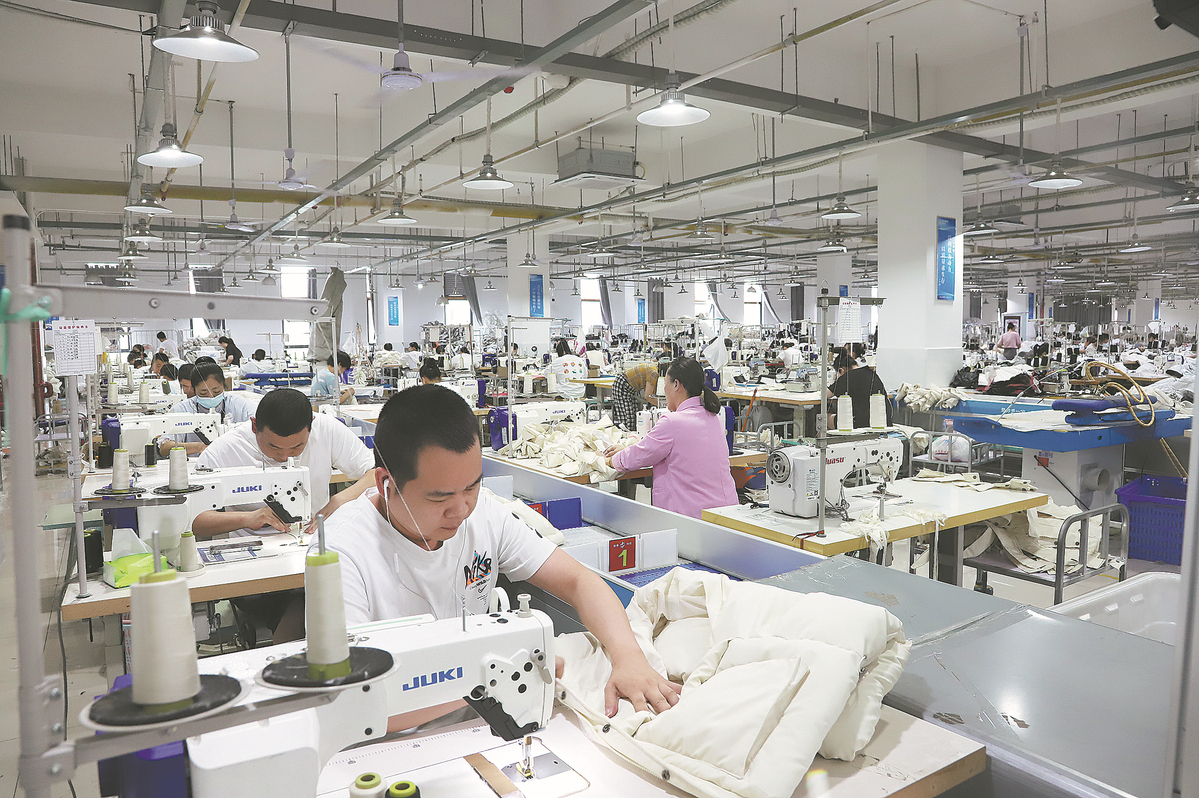Returning home to take part in Tianmen's garment e-commerce sector


In Tianmen, Hubei province, a growing number of entrepreneurs are turning the city into a thriving hub for garment e-commerce, as returnees leverage global platforms to bring local products to international markets.
"When I returned from Guangzhou (Guangdong province) to start my business in 2020, the company had just over a dozen employees," said Liu Jianyong, general manager of Tianmen Yuezi Clothing Co Ltd, while checking the production line in the company's workshop.
"Three years later, it has grown to a management team of 150 people and more than 2,000 sewing workers, with annual sales revenue reaching 300 million yuan ($42.18 million)," Liu said.
Founded in 2019, Tianmen Yuezi specializes in the production and sales of cross-border apparel, with its products exported to the United States, Germany, Canada and other markets.
Currently, all of the company's operations revolve around cross-border e-commerce, with sales channels being expanded simultaneously, Liu said.
The company's output exceeded 10 million sets of garments in 2024, making it a leading provincial-level supplier in the cross-border garment e-commerce sector.
As a pioneer of Tianmen's returnee-led garment e-commerce boom and a leading entrepreneur in the Baima garment e-commerce base, Liu's story exemplifies the broader trend of entrepreneurs returning to their hometowns to launch businesses.
By August this year, Tianmen had registered around 7,000 market entities in garment e-commerce, with annual transaction volumes surpassing 50 billion yuan. Over the past three years, the sector has attracted about 100,000 people to return and settle in the city.
In its development, Tianmen's garment e-commerce sector has gradually moved toward a park-based and centralized model, with industrial clusters such as the Baima garment e-commerce base at its core.
Tianmen has built a full-chain garment e-commerce ecosystem covering weaving, fabric and accessories, garment processing, e-commerce marketing and cross-border logistics, with the initial effects of industry clustering beginning to emerge, according to local authorities.
To further support local garment companies in expanding sales abroad, the Tianmen garment e-commerce association provides merchants with full-chain services — from training and store setup to financing, policy guidance and inventory clearance.
"In cross-border e-commerce, we provide training, connect firms with overseas warehouses and even organize trips abroad to support their global expansion," said Cheng Meng, secretary-general of the association.
She added that the association also promotes offline brand building and offers policy analysis to strengthen networks.
Cheng noted that small and micro businesses are also "going global as a team", with delegations sent to the US, Thailand, Japan and South Korea.
"We adopt a collaborative model, dividing tasks among members from product sourcing to operations and external partnerships, which is far more effective than going it alone," she said.
According to the Tianmen bureau of commerce, the city will continue to accelerate the expansion of overseas warehouses in Japan and South Korea, deepen engagement with Southeast Asia and extend its presence into European markets.
The bureau will also improve policy support by aligning overseas warehouse development with enterprises' actual needs, thereby facilitating global expansion for Tianmen's garment sector.




































